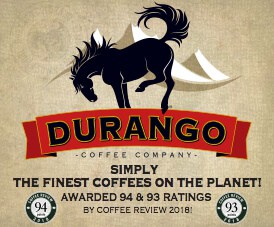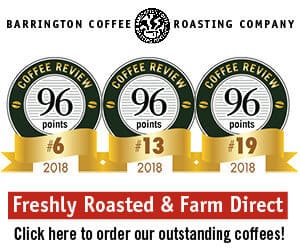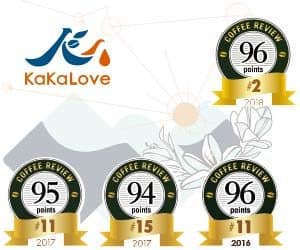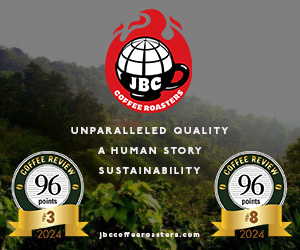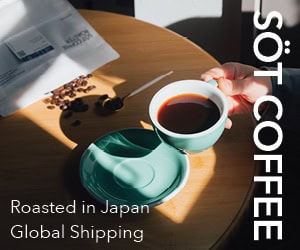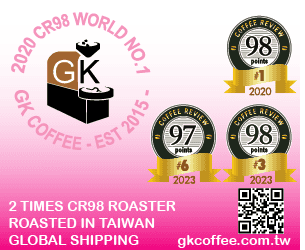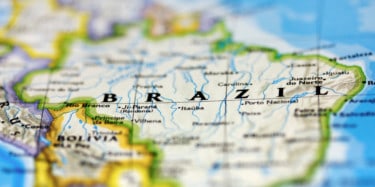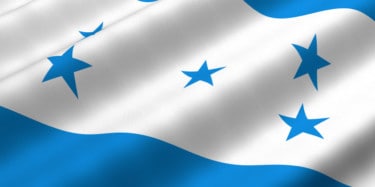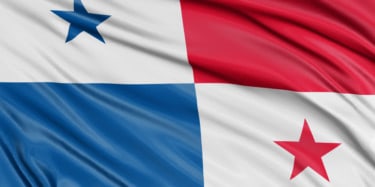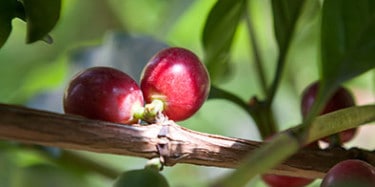From trees of the Catuai and Yellow Bourbon varieties of Arabica processed by the pulped natural method, in which the skin is removed from the coffee fruit immediately after picking, but the seeds or beans are dried with the sweet pulp, or fruit flesh, still adhering to them. Ghost Town is a small-batch roaster, wholesaler, equipment supplier and training resource located in Bozeman, Montana that
SEARCH RESULTS
Brazil Pedra Redonda
Produced entirely from trees of the Catuai variety of Arabica and processed by the pulped natural method, in which the skin is removed from the coffee fruit immediately after picking, but the seeds or beans are dried with the sweet pulp, or fruit flesh, still adhering to them. The Pedra Redonda farm is run by farmer José Santana with his two brothers, and selectively hand-harvests its coffee,
Brazil Yellow Catuai Esperança Joao “Zinho” Souza
Processed by the pulped natural method, in which the skin is removed from the coffee fruit immediately after picking, but the seeds or beans are dried with the sweet pulp, or fruit flesh, still adhering to them. João “Ziñho” Souza and his family produced this micro-lot from trees of the Yellow Catuai variety of Arabica at their farm Fazenda Esperança. Ritual is a frequently celebrated (NY Times,
Subtle but Not Tame: Brazils 2014
The various cup profiles associated with the world’s coffee regions are the result of a complex interplay between nature and nurture, between the givens of nature – growing altitude, soil and rainfall patterns – and local traditions that for decades determined the varieties of coffee tree typically grown in a region and how the fruit was typically harvested and processed. The sum total of this
Panama Los Lajones Estate Lot 14
Certified organically grown on the admirably sustainable Los Lajones farm. From trees of the Caturra and Yellow Catuai varieties of Arabica and processed by the dry or "natural" method, meaning the beans were dried inside the fruit rather than after the fruit has been removed, as is the case with wet-processed or "washed" coffees. Temple Coffee is a quality-focused retail and wholesale specialty
Elida Estate Natural Typica and Catuai
This is a dry-processed or "natural" coffee, meaning the beans were dried inside the fruit rather than after the fruit has been removed, as is the case with wet-processed or "washed" coffees. Elida Estate is one of Panama’s most distinguished farms. Roasted at PT’s Coffee, where the motto is “without the love, it’s just coffee.” Visit www.ptscoffee.com or call 888-678-5282 for more information.
A Focus on the Classic: Coffees of Honduras
With this review of coffees from Honduras the excitement may reside more in the story than in the cup itself. The story is how this Central American nation, long considered mainly a source of low-to-decent quality, commercial-grade coffees, has stepped up over the past five years or so and is producing significantly better coffees and more of them. Of the eighteen Honduras coffees we were able to
Direct Trade La Tortuga Honduras
Produced at an elevation of around 5,000 feet from trees of the Bourbon, Caturra, Catuai and Typica varieties of Arabica. This coffee continues a nine-year relationship between Intelligentsia Coffee and Honduras farmer Don Fabio Caballero. This sample was roasted at Intelligentsia’s Los Angeles facility. With operations in the Chicago and Los Angeles areas, Intelligentsia is a distinguished
Finca El Puente Honduras
This coffee is produced entirely from trees of the respected Catuai variety of Arabica and is sourced through a direct relationship with farmers Moises Herrera and Marysabel Caballero. Finca El Puente refers to a portion of the larger farm that produced this coffee, Dulce Nombre de Jesús. Counter Culture is a specialty roaster with an informative and lively website, a commitment to fine coffee,
Honduras La Cuchilla Farm
Produced entirely from trees of the red and yellow Catuai varieties of Arabica by Orland Paz at La Cuchilla, a farm based in La Union, Honduras at an elevation of 5,000 feet. OQ Coffee is a New Jersey-based small-batch roasting company that emphasizes its commitment to coffee quality and community-building. Visit www.oqcoffee.com for more information.
Cocafelol Honduras
From trees of the Bourbon, Caturra and Catuai varieties of Arabica and produced by COCAFELOL, an organically-certified Honduran coffee cooperative located in La Labor, Ocotepeque. De La Paz Coffee is a small-batch coffee roasting company that focuses on high quality coffee and meticulous roasting. Visit www.delapazcoffee.com or call 415-525-4344 for more information.
San Juanillo Costa Rica
Produced by third-generation coffee farmer Carlos Haug from trees of the Caturra and Catuai varieties. Rainforest Alliance certified, meaning this coffee was produced following sustainable ecological and socio-economic criteria developed by the Sustainable Agricultural Network, a coalition of independent, environment-focused non-governmental organizations. Path Coffee Roasters is a New York-based
Panama Lerida Estate Lot 9
Lerida is one of the most celebrated of Panama farms; Lot 9 represents coffee grown at the second-highest elevation on the farm. From trees of the Caturra and Catuai varieties of Arabica. Temple Coffee is a quality-focused retail and wholesale specialty roaster active in Sacramento, California since 2005. Committed to sourcing, roasting and brewing the finest coffees, Temple features coffee from
Not Your Same Old Panama Coffees
It’s a tribute to how much the specialty coffee world has changed over the last ten years that the style of coffee traditionally associated with Panama – clean, soft, balanced, gently fruit- and floral-toned – hardly showed up among the coffees nominated by roasters for this month’s article. True, Panama coffees of any kind very nearly didn’t show up, given the harvest was late and our article was
Guatemala Huixoc
Rainforest Alliance Certified, meaning this coffee was produced following sustainable ecological and socio-economic criteria developed by the Sustainable Agricultural Network, a coalition of independent, environment-focused non-governmental organizations. Processed by the classic wet method: fruit is removed before drying using traditional ferment-and-wash methods and the beans are sun-dried.
Sol do Paraguassu Farm Natural Processed Brazil
Produced from trees of the respected Catuaí and Mundo Novo varieties of Arabica. This is a dry-processed or "natural" coffee, meaning the beans were dried inside the fruit rather than after the fruit has been removed, as is the case with wet-processed or "washed" coffees. OQ Coffee is a New Jersey-based small-batch roasting company that emphasizes its commitment to coffee quality and
Brazil Sitio do Tanque
From the Fazenda Sitio Tanque in the relatively new growing region of Chapada Diamantina. Processed by the pulped natural method, in which the skin is removed from the coffee fruit immediately after picking but the seeds or beans are dried with the sweet pulp, or fruit flesh, still adhering to them. From trees of the Catuai and Mundo Novo varieties. Gavagai is a Taiwanese one-location, in-store
Organic Brazil Diamantina
Produced by Cooperbio Cooperative from trees of the heirloom Bourbon and respected Catuai varieties of Arabica. Processed by the wet or “washed” method in which the skin and fruit pulp are completely removed from the seeds or beans before they are dried. Certified organically grown and biodynamically grown. Although the words "Fair Trade" appear on the label of the attractive 12-ounce valve-topped
Honey Pot Espresso
Produced by Wilford Lamastus on the Elida Estate in the Boquete growing region of Panama. A blend of three botanical varieties of Arabica (Catuai, Typica and Bourbon), all processed by the “honey” method, meaning the skin was removed from the coffee fruit immediately after picking but the beans or seeds were dried with at least some of the fruit pulp or “honey” still adhering to them. This
Single-Variety Coffees: Aficionado Fun
This month’s reviews give consumers an opportunity to sample fourteen retail-roasted coffees that express a range of the cup character associated with specific botanical varieties of Coffea Arabica. The Arabica species, of course, produces virtually all of the world’s finest coffees. But within that species hundreds of distinct commercial varieties have developed. Coffea arabica is largely


